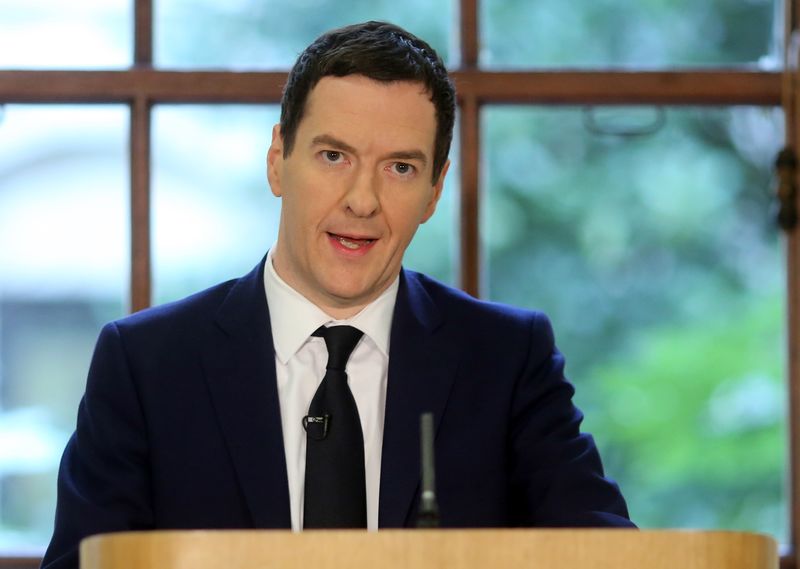LONDON (Reuters) - British finance minister George Osborne went too far with claims of victory in a row with the European Union over an increase in Britain's funding of the bloc, a group of MPs said on Friday.
Last November, Osborne announced he had halved a surprise 2.1 billion-euro bill from the EU resulting from changes in the way the size of Europe's economies is measured.
The increase had prompted a furious response from Prime Minister David Cameron and his increasingly Eurosceptic Conservative Party, six months before a national election in Britain set for May 7.
EU officials said payment had not been reduced, only offset, and domestic political rivals accused Osborne of deception.
In a report that may embarrass Osborne ahead of the election, the cross-party Treasury Select Committee said the facts did not fit with his claim of halving the bill.
It largely dismissed his argument that there had been doubts about whether Britain could use its EU budget rebates in the calculation of its new contribution and that should have been "unambiguously clear" to the government.
"The government got a good deal for the UK by securing an interest-free delay to the EU bill. But by overstating its success on the rebate, it distracted attention from this achievement," said committee chairman Andrew Tyrie, a Conservative lawmaker and former Treasury adviser.
No comment from the finance ministry was immediately available.
The row over the bill inflamed tensions with Cameron's European counterparts and agitated the rebellious Eurosceptic wing of his Conservative Party at a time of rising anti-EU sentiment among British voters.
"(Osborne) must now apologise to taxpayers for making this completely false claim," said Chris Leslie, a finance spokesman from the main opposition Labour Party.

The Conservative Party has pledged to hold a referendum on Britain's membership of the EU if it remains in power after the May election, which is shaping up to be one of the most uncertain in modern British history.